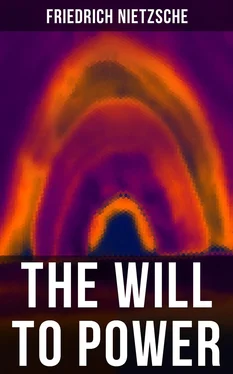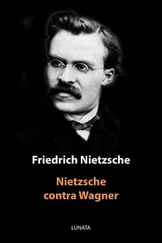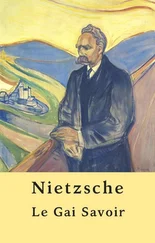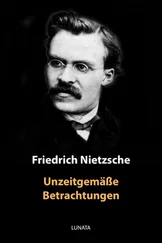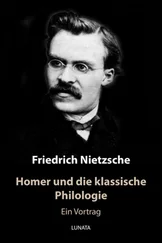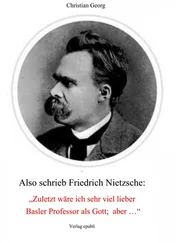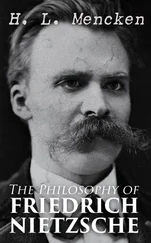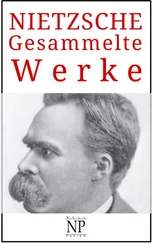(d) There is an attempt to read the phenomena of life in such a way as to arrive at the divine guidance of old, with its powers of rewarding, punishing, educating, and of generally conducing to a something better in the order of things.
(e) People once more believe in good and evil; so that the victory of the good and the annihilation of the evil is regarded as a duty (this is English, and is typical of that blockhead, John Stuart Mill).
(f) The contempt felt for "naturalness," for the desires and for the ego: the attempt to regard even the highest intellectuality of art as a result of an impersonal and disinterested attitude.
(g) The Church is still allowed to meddle in all the essential occurrences and incidents in the life of the individual, with a view to consecrating it and giving it a loftier meaning: we still have the "Christian State" and the "Christian marriage."
31.
There have been more thoughtful and more destructively thoughtful 4times than ours: times like those in which Buddha appeared, for instance, in which the people themselves, after centuries of sectarian quarrels, had sunk so deeply into the abyss of philosophical dogmas, as, from time to time, European people have done in regard to the fine points of religious dogma. "Literature" and the press would be the last things to seduce one to any high opinion of the spirit of our times: the millions of Spiritists, and a Christianity with gymnastic exercises of that ghastly ugliness which is characteristic of all English inventions, throw more light on the subject.
European Pessimism is still in its infancy—a fact which argues against it: it has not yet attained to that prodigious and yearning fixity of sight to which it attained in India once upon a time, and in which nonentity is reflected; there is still too much of the "ready-made," and not enough of the "evolved" in its constitution, too much learned and poetic Pessimism; I mean that a good deal of it has been discovered, invented, and "created," but not caused.
32.
Criticism of the Pessimism which has prevailed hitherto. The want of the eudæmonological standpoint, as a last abbreviation of the question: what is the purpose of it all? The reduction of gloom.
Our Pessimism: the world has not the value which we believed it to have,—our faith itself has so increased our instinct for research that we are compelled to say this to-day. In the first place, it seems of less value: at first it is felt to be of less value,—only in this sense are we pessimists,—that is to say, with the will to acknowledge this transvaluation without reserve, and no longer, as heretofore, to deceive ourselves and chant the old old story.
It is precisely in this way that we find the pathos which urges us to seek for new values. In short: the world might have far more value than we thought—we must get behind the naïveté of our ideals, for it is possible that, in our conscious effort to give it the highest interpretation, we have not bestowed even a moderately just value upon it.
What has been deified ? The valuing instinct inside the community (that which enabled it to survive).
What has been calumniated ? That which has tended to separate higher men from their inferiors, the instincts which cleave gulfs and build barriers.
33.
Causes effecting the rise of Pessimism :—
(1) The most powerful instincts and those which promised most for the future have hitherto been calumniated, so that life has a curse upon it.
(2) The growing bravery and the more daring mistrust on the part of man have led him to discover the fact that these instincts cannot be cut adrift from life, and thus he turns to embrace life.
(3) Only the most mediocre, who are not conscious of this conflict, prosper; the higher species fail, and as an example of degeneration tend to dispose all hearts against them—on the other hand, there is some indignation caused by the mediocre positing themselves as the end and meaning of all things. No one can any longer reply to the question: "Why?"
(4) Belittlement, susceptibility to pain, unrest, haste, and confusion are steadily increasing—the materialisation of all these tendencies, which is called "civilisation," becomes every day more simple, with the result that, in the face of the monstrous machine, the individual despairs and surrenders.
34.
Modern Pessimism is an expression of the uselessness only of the modern world, not of the world and existence as such.
35.
The "preponderance of pain over pleasure" or the reverse (Hedonism); both of these doctrines are already signposts to Nihilism....
For here, in both cases, no other final purpose is sought than the phenomenon pleasure or pain.
But only a man who no longer dares to posit a will, a purpose, and a final goal can speak in this way—according to every healthy type of man, the worth of life is certainly not measured by the standard of these secondary things. And a preponderance of pain would be possible and, in spite of it, a mighty will, a saying of yea to life, and a holding of this preponderance for necessary.
"Life is not worth living"; "Resignation"; "what is the good of tears?"—this is a feeble and sentimental attitude of mind. " Un monstre gai vaut mieux qu'un sentimental ennuyeux. "
36.
The philosophie Nihilist is convinced that all phenomena are without sense and are in vain, and that there ought to be no such thing as Being without sense and in vain. But whence comes this "There ought not to be?"—whence this "sense" and this standard ? At bottom the Nihilist supposes that the sight of such a desolate, useless Being is unsatisfying to the philosopher, and fills him with desolation and despair. This aspect of the case is opposed to our subtle sensibilities as a philosopher. It leads to the absurd conclusion that the character of existence must perforce afford pleasure to the philosopher if it is to have any right to subsist.
Now it is easy to understand that happiness and unhappiness, within the phenomena of this world, can only serve the purpose of means : the question yet remaining to be answered is, whether it will ever be possible for us to perceive the "object" and "purpose" of life—whether the problem of purposelessness or the reverse is not quite beyond our ken.
37.
The development of Nihilism out of Pessimism. The denaturalisation of Values. Scholasticism of values. The values isolated, idealistic, instead of ruling and leading action, turn against it and condemn it.
Opposites introduced in the place of natural gradations and ranks. Hatred of the order of rank. Opposites are compatible with a plebeian age, because they are more easy to grasp.
The rejected world is opposed to an artificially constructed "true and valuable" one. At last we discover out of what material the "true" world was built; all that remains, now, is the rejected world, and to the account of our reasons for rejecting it we place our greatest disillusionment.
At this point Nihilism is reached; the directing values have been retained—nothing more!
This gives rise to the problem of strength and weakness :—
(1) The weak fall to pieces upon it;
(2) The strong destroy what does not fall to pieces of its own accord;
(3) The strongest overcome the directing values.
The whole condition of affairs produces the tragic age.
3. The Nihilistic Movement As an Expression of Decadence
Table of Contents
Читать дальше
